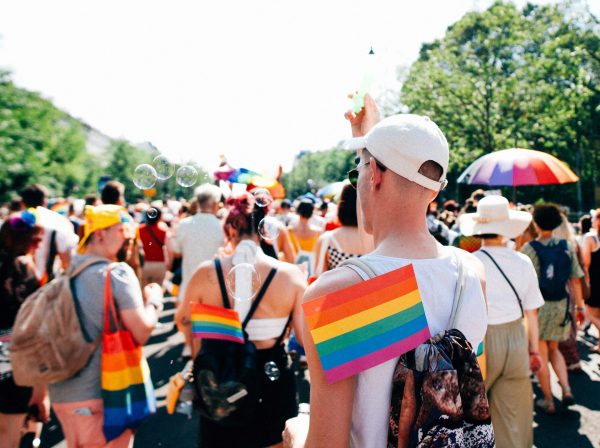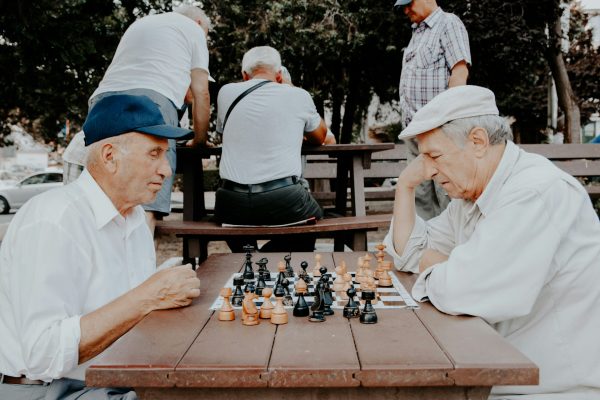Body image is something a lot of people struggle with–especially queer people. Although society has a lot to say about females with anorexia and oft depicts them in popular media, not much is said of men with body dysmorphia, and contrary to public opinion, it is actually quite prevalent.
Queer people are often oversexualized and a lot of extra attention is paid to our appearances–that puts a lot of pressure on how we view our bodies. Women especially are critiqued based on their physique. However, that’s not what my article is about; here I will write about my experiences and the issues I face with body image.
Until recently, there was not much scientific research (or concern) about eating disorders and body image issues for males. Manorexia was a term thrown around in a joking way; people didn’t really think about masculinity as putting pressure on weight. Although the accepted statistic was that 1 in 10 men struggle with an eating disorder, new research states that the ratio is closer to 1 in 4. Another study published that about 18 percent of adolescent boys are highly concerned about their weight and physique. Muscle dysmorphia, or “reverse anorexia” is also a newly-researched disorder among males, and is a condition where men feel they are underweight and desire to be more muscular, which leads to steroid abuse and gym addictions.
Just let that sink in. 1 in 4 men struggle with an eating disorder. That’s a lot.
This statistic may seem odd to you. To me, I’m not surprised at all because I am part of that percentile. I struggle with my body image. I have battled with an eating disorder. I am concerned with both my weight and my physique. I feel a crippling desire to be more muscular. I am not happy with my body.
I constantly look in mirrors, but not in vanity, in sadness. I stare at myself and think of all the things I want to change.
I won’t allow myself to own a scale. I won’t weigh myself. I am perpetually afraid of relapsing into an unhealthy lifestyle of undereating.
Being gay makes my stress about my body even more. Gay men are extremely sexualized (by the public but especially by each other). So much is made of our physique: definition, muscles, body hair, waist size, pecs, abs, biceps, jawlines, cheekbones, everything.
I struggled with body image for most of my life. Middle school was rough, complete with body dysmorphia disorder and some anorexia (as much as I could living in a multi-generational Italian household). But thankfully, by high school, I had tackled my unhealthy lifestyle. I still didn’t like how I looked, but I was doing better. Then I went to college, accepted myself for who I am, and came out as gay. Then things got bad.
As soon as I came out as gay, I felt all this new pressure to look a certain way. The more I became involved in, and aware of, gay culture, the worse it got. Although I had been one my whole life, once I learned what a twink was, I had a whole new set of pressures. I all of a sudden felt the need to conform to a standard. I felt fat again. I felt the need to lose weight. I wanted desperately to become more muscular.
I was too afraid of “dieting” because of my past, but I started going to the college’s gym a lot. I eventually got my gay haircut (one of those classic college (twink) undercuts). I ordered Andrew Christian clothes. It actually made me feel a little better. Part of this was redefining myself, part of it was conforming to gay standards of what is “sexy.”
Every time a guy would call me a twink I would take it as a loaded compliment: yes it was a nice thing to say, but it was also a task, a challenge, a piece of homework. Every time I was told I was twinky I felt the need to be skinnier, to go to the gym again, to get another protein bar, to shave (even) more, to cut my hair, to get skimpier clothes. The gay community and its ideas about beauty have been pressuring me to look a certain way. These standards of attractiveness make me feel bad about myself. They make me unhappy when I look in a mirror.
Yes, I am a man. Yes, I struggle with body image. Yes, being gay makes it worse. This is not just a problem for straight girls. Body dysmorphia is something a lot of people struggle with, it is not something that can be ignored. So please: give more compliments, accept people the way the are, and don’t pressure someone to look a certain way. Spread love and acceptance for all weights, body types, shapes, and sizes. Tell someone they look beautiful. Make someone smile.






